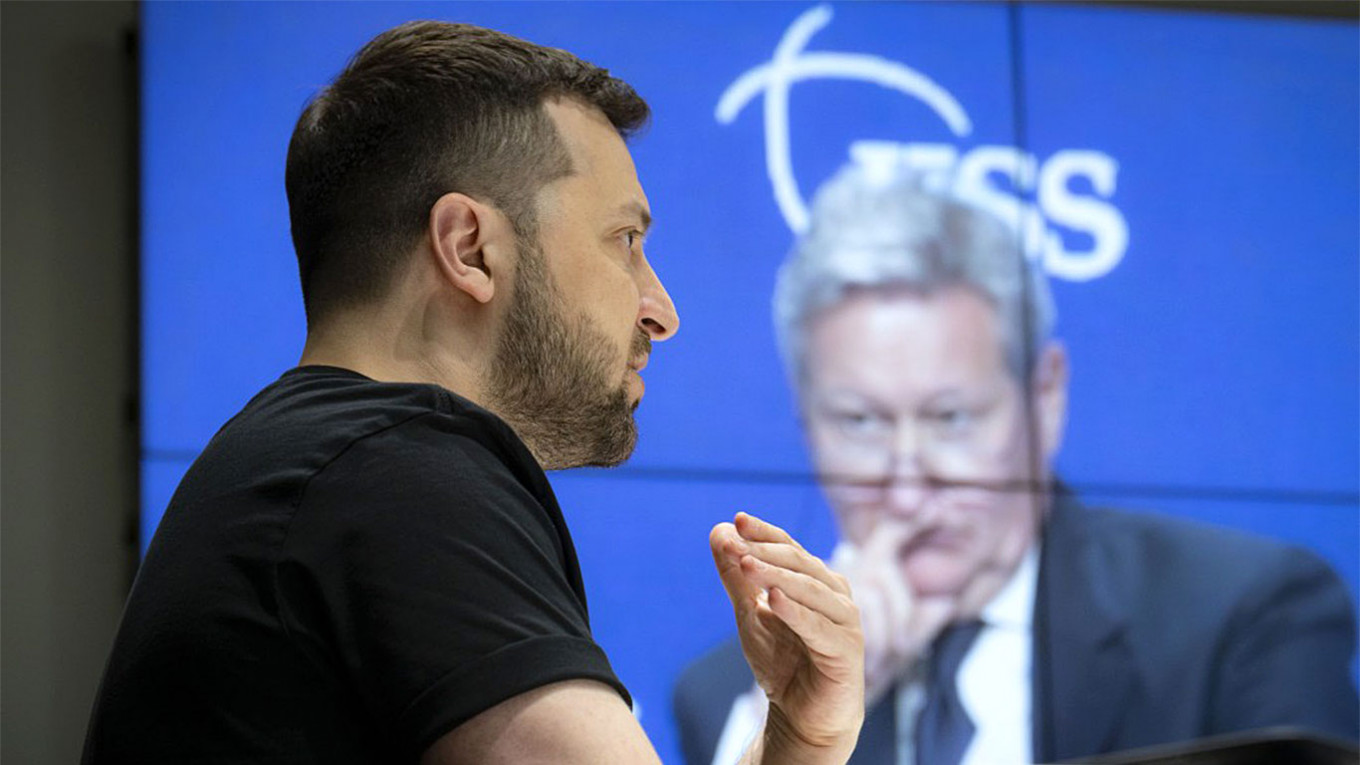Nigel Gould-Davies

Asian defense ministers speaking at the IISS Shangri-La Dialogue 2022 were nearly unanimous in expressing grave concerns about Russia’s actions in Ukraine. That a European issue played so prominent a role at the summit – and that ministers from so many diverse countries spoke from a similar position – is encouraging news for those who are seeking to hold together the broad international coalition opposing Russia’s invasion.
For the first time a crisis in Europe loomed large over Asia’s premier defense summit, the IISS Shangri-La Dialogue, which took place this year from June 10-12. It was no surprise that Western officials, united in opposition to Russia’s aggression, addressed Russia’s war in Ukraine. But nearly every Asian defense minister did so, too. The conflict is having “seismic repercussions” for the region, according to Malaysia’s Senior Minister of Defense Dato’ Seri Hishammuddin Tun Hussein. He and his counterparts raised three concerns.
Firstly, a flagrant challenge to international law in one part of the world weakens it elsewhere. Japanese Minister of Defense Kishi Nobuo noted that the response to Russia’s aggression would influence “not only the fate of Ukraine but also that of the rules-based international order.” His prime minister, Kishida Fumio, was even clearer in his keynote address: “Ukraine today may be East Asia tomorrow.” Others echoed this concern.
Secondly, and more specifically, is the precedent that the confrontation between Russia and the West over Ukraine sets for a possible conflict between the United States and China over Taiwan. As Kishi noted, the “international community already shares the concern that a situation akin to Russia’s aggression against Ukraine could erupt in the Indo-Pacific.” His Fijian counterpart, Inia Batikoto Seruiratu, drew the comparison even more explicitly.
Thirdly, there have been direct and material consequences for commodity prices. As Indonesia’s Minister of Defense, Prabowo Subianto, noted, “It seems far away from us, but it affects us directly. The food problem, the energy problem.” His counterpart from Singapore, Dr. Ng Eng Hen, noted that, since interdependence was higher among Asian states than between Europe and Russia, the economic consequences of war in Asia would be even more severe.
General Wei Fenghe noted that China “deeply regrets and is greatly saddened” by a conflict that was affecting his country “tremendously.” He reminded his audience that China had called for peace talks from the second day of the war, conveying the impression that China would much rather it had not begun. By calling for arms supplies to Ukraine and sanctions against Russia to cease, he made clear that China wanted it to end quickly.
The highlight of this year’s Shangri-La Dialogue was Ukrainian President Volodymyr Zelensky’s unprecedented virtual address. Wearing a T-shirt designed by a 16-year old Singaporean girl to support Ukraine, he quoted former Singaporean prime minister Lee Kuan Yew to reinforce the global importance of respect for rules: “If there had been no international law, and the big fish ate the small fish and the small fish ate shrimps, we would not have existed.” One wider lesson of Russia’s invasion was the importance of “pre-emptive measures to forestall violence” before aggression began. Another was the indivisibility of freedom of navigation. In this he echoed a question posed by IISS Director-General Dr. John Chipman in his opening address: “How can one speak about helping to support a free and open Indo-Pacific, when so far it has not proven possible to ensure a free and open Black Sea?”
Lessons for the West
While not everyone at the summit condemned Russia’s invasion of Ukraine – Gen. Wei hinted that responsibility lay with the U.S. – Asian delegations shared near-unanimous concern about both its direct economic effects and longer-term security implications. In doing so, they reiterated both the fragility and value of principles of international order. Two implications follow for Western diplomacy.
Firstly, this should encourage those seeking to sustain the broad international coalition against Russia’s invasion. The June 3 meeting between Macky Sall, chairperson of the African Union, and Russian President Vladimir Putin to discuss the global food crisis raised concerns that this coalition may be fraying. In Asia, though, few seem willing to consider Russia as part of the solution to the crisis it created, and most view the wider security ramifications to be at least as important as commodity price inflation.
Secondly, Asian concerns should give pause to those inclined to compromise with Russia by negotiating a peace – and imposing it on Ukraine – that would reward aggression as the price of ending, if only temporarily, the war. The depth of concern with the integrity of the rules-based order, and by implication, the indivisibility of security, recalls the Haitian delegate’s remark at the League of Nations’ debate on Italy’s invasion of Abyssinia in 1935: “Let us never forget that one day we may be somebody’s Abyssinia.”
Many small states heeded that call, but the large ones that mattered most did not. Their inadequate response to Mussolini’s invasion – an attempt to bargain the partition of Abyssinia and avoid implementing the toughest sanctions – not only failed but emboldened other aggressors, paving the way to the Second World War. Some in Europe seem attracted to a similar compromise today. Others in Asia, though further away, see matters more clearly. When the leaders of France, Germany and Italy visited Kyiv for the first time and met jointly with Zelensky, the eyes of both continents were watching closely.
No comments:
Post a Comment